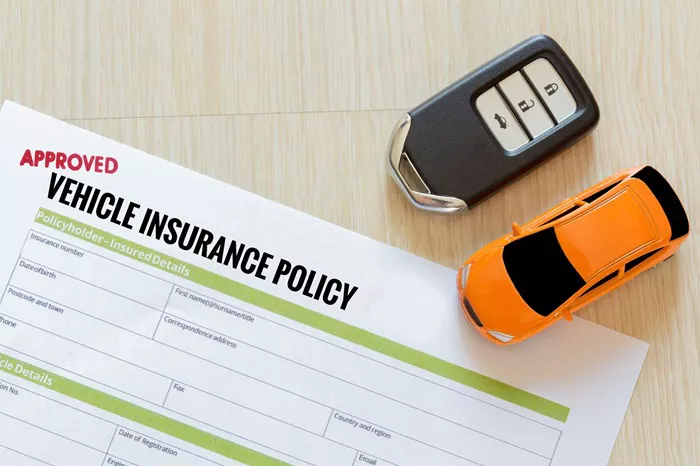Owning an RV is one of the best ways to explore Canada’s open roads, wild parks, and cozy campgrounds. Whether you’re heading out on weekend trips or planning cross-country adventures, having the right RV insurance matters more than most people think. One company that stands out—especially in Canada—is Sonnet Insurance.
But is Sonnet RV insurance the smart choice for Canadians?
In this article, we’ll walk through what Sonnet offers, how it works, what it covers, and who it’s really meant for. Whether you’re new to RV life or thinking about switching insurance providers, this guide will give you a clear, easy-to-understand overview.
Let’s dive in.
Who Is Sonnet Insurance?
Sonnet is a Canadian digital insurance company that started in 2016. It’s part of the larger Economical Insurance group, one of Canada’s oldest and most trusted insurance companies. What makes Sonnet different is that it operates completely online. You can get a quote, buy a policy, and manage everything from your computer or phone.
Sonnet focuses on making insurance simple and accessible. That means clear pricing, easy applications, and no confusing language.
So, what about RV insurance?
Well, Sonnet doesn’t offer a stand-alone RV insurance product like some specialty insurers do. But that doesn’t mean you’re out of luck if you have an RV. Depending on the type of RV you own and how you use it, Sonnet may still be able to insure it under a home or auto policy—or help guide you to the right coverage.
What Types of RVs Might Be Covered?
This is where it gets a bit tricky, but we’ll break it down.
Not all RVs are the same, and how they’re insured depends on what kind you own:
Motorhomes (Class A, B, or C): These are RVs that you drive. If you own a drivable RV, it’s considered a vehicle, and it usually needs its own auto insurance policy.
Towable RVs (travel trailers, fifth wheels, pop-ups): These are pulled by a truck or SUV. Since you can’t drive them on their own, they’re treated more like personal property and might be covered under a home insurance policy.
Sonnet may not offer dedicated RV auto policies for motorhomes. But they can sometimes insure towable RVs through their homeowners or renters policies. Coverage typically includes protection for the RV when it’s parked at home, and for personal belongings inside.
However, if your RV is your primary residence or if you use it full-time, you may need a different provider that specializes in RVs. Sonnet is mostly designed for people who use their RVs seasonally or occasionally.
What Does Sonnet’s RV Coverage Include?
If your RV is towable and qualifies under Sonnet’s home insurance policies, here’s what you might be covered for:
Theft or Damage
If your trailer is stolen or damaged by fire, vandalism, or weather while parked at your property, Sonnet can help cover the cost of repairs or replacement.
Personal Belongings
If your RV is full of personal items—like camping gear, clothes, electronics, or cooking tools—and something happens to them, your Sonnet home insurance might help cover the loss.
Liability Coverage
If someone is injured on or around your RV while it’s parked on your property, liability coverage may protect you from legal or medical costs.
Detached Private Structures
Some policies can treat RVs like detached structures, similar to sheds or garages, depending on how your home insurance is set up.
Keep in mind, coverage details may vary by province and situation. It’s important to talk to a Sonnet representative—or get a quote through their website—to confirm how your specific RV would be handled.
What Is Not Covered?
Now here’s the important part: if you drive your RV, Sonnet probably won’t be the right fit. That’s because Sonnet doesn’t currently offer motorhome auto insurance policies.
If you need coverage for:
Driving your RV on public roads
Collision while driving
Accidents caused by other drivers
Roadside emergencies
Full-time RV living
You’ll likely need to go through a specialty RV insurer or a provider that offers motorhome insurance, such as Aviva, Intact, or CAA.
Sonnet’s strength lies in covering towable RVs as part of your property insurance, not insuring motorhomes or providing full-timer coverage.
How Do You Get a Sonnet RV Insurance Quote?
Sonnet’s entire process happens online. It’s one of the reasons people like them—they make getting insurance feel fast and stress-free. Here’s how it works:
Go to Sonnet.ca
Click “Get a Quote”
Choose either “Home” or “Tenant” insurance
Answer a few basic questions about your living situation
Mention that you have a travel trailer or RV as part of your property
Review your personalized quote instantly
You can also chat with their customer support team online if you need help.
If Sonnet determines your RV isn’t eligible for coverage through their platform, they’ll usually let you know right away.
Is Sonnet’s RV Insurance Expensive?
Sonnet is known for being transparent with pricing. They use a technology-driven approach to calculate your quote based on risk factors like:
Where you live
The value of your RV or trailer
Your claims history
The coverage options you choose
Because Sonnet is digital, they can sometimes offer better rates than traditional insurers, especially if you’re bundling your home and trailer together. There are no hidden fees or tricky upsells.
Still, if you need advanced protection for driving or living full-time in your RV, a specialized provider may offer more value, even if it costs a bit more.
Who Should Use Sonnet for RV Insurance?
Sonnet can be a smart option for:
Canadians with towable RVs: Like travel trailers or pop-ups that are stored at home
Seasonal campers: Who use their RV a few times a year and want simple protection
People who like managing insurance online: Sonnet’s website and mobile tools are very user-friendly
Homeowners or renters looking to bundle: You can often add your trailer as part of your existing policy
Sonnet is not the best option if:
You own a motorhome you drive
You live in your RV full-time
You travel across Canada or into the U.S. regularly
You want RV-specific features like emergency expenses or awning coverage
In those cases, a provider like Aviva, CAA, or Progressive (for U.S. travel) may be a better fit.
Why Do Some RV Owners Choose Sonnet?
There are a few reasons people go with Sonnet when insuring their RVs:
Simplicity
Everything is done online. No paperwork. No long phone calls. No waiting. You can get a quote in minutes and adjust your coverage anytime.
Transparency
Sonnet shows you exactly what you’re paying for. There’s no fine print to worry about.
Flexibility
If your RV is seasonal and part of your home setup, it’s easy to add to your policy.
Canadian Focus
Sonnet is built for Canadians, so their policies and customer service are geared to local needs and weather conditions.
What Should You Do Before Choosing Sonnet?
Before you buy a policy, make sure you:
Know what type of RV you have – Is it towable or drivable?
Decide how you use your RV – Full-time, seasonal, or occasional?
Check if Sonnet operates in your province – Availability may vary.
Compare quotes – Even if Sonnet looks good, compare it with at least one or two other companies.
Read the fine print – Understand what’s covered and what’s not.
Conclusion
If you have a towable RV, live in Canada, and only use your RV part-time, Sonnet could be a smart, affordable choice. It offers straightforward coverage, easy online tools, and fair pricing. You won’t get deep customization or road-related benefits, but for many campers, that’s totally fine.
On the other hand, if you’re driving a motorhome or hitting the road for months at a time, you’ll probably need a dedicated RV policy from a specialty provider.
Either way, it’s worth checking Sonnet’s site to see if your trailer can be covered. The process is simple and won’t take more than a few minutes.
In the end, the right RV insurance isn’t just about the cheapest rate—it’s about peace of mind. If Sonnet can give you that, it might just be the perfect fit.
Related topic:
What Is Star RV Insurance and Do You Need It?
Is Priority RV Insurance the Best Choice for Your Vehicle?
Is Your Permanently Parked RV Protected? Here’s What You Need to Know




















